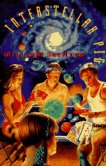The Magician's Book: A Skeptic's Adventures in Narnia by Laura Miller

If you like the Chronicles of Narnia, read this book. Miller, one of the co-founders of Salon.com, writes about Narnia with the love and exasperated tone that we all have, we who loved these books as children and worked out their subtext later on.
The first two-thirds of The Magician's Book are simply splendid. It gives you the pleasure of talking over all your favorite -- and least favorite -- passages from the book, with the added bonus of learning bits and pieces about C.S. Lewis' life which may have directly led to those passages. (A fascinating life, too: for the first long while, she makes him out to be a kindly, bright old bachelor, not unlike Mr. Tumnus, but after that she starts referencing all sorts of things outside this characterization: frequent bawdy, beery evenings; a writing group called the Inklings which included Tolkien; a touch of the English disease, and so on.)
The last third of the book disintegrates into a rather passionate defense of Lewis' work versus Tolkien's. (Tolkien did not approve of Narnia.) This is all very well, but I don't especially care about Tolkien's life or opinions, especially when Lewis was such an interesting figure on his own. And there was plenty of Narnia left unexplored: I want to know what in Lewis' life inspired Puzzle, Puddleglum, Shift, and so on.
However, she does a marvelous job of identifying just why I loved these books so much growing up. For one thing, the children in the books are nearly always treated as adults while in Narnia. The decisions they make are important, life-or-death choices, and when confronted with conflict, they are expected to behave every bit as morally and bravely as adults. This is part of why The Last Battle always felt like such a disappointment. At the very end, you see the Pevensie parents waving to their children far off in the distance. And of course, you recognize that this is necessary: Heaven isn't Heaven if you're separated from your family forever. But at the same time it means a final and definite end to any real adult adventures for the children. Peter cannot possibly be High King over his father.
The other thing The Last Battle robs us of is the limitless horizon of new stories. Miller talked to other authors and readers about their experiences with Narnia, and Neil Gaiman - who is quoted extensively, and has some rather wonderful things to say -- points out that Narnia is a landscape in which one senses all sorts of stories happening just out of sight. From the day when Lucy first arrives in Narnia and Mr. Tumnus spends hours telling her all about the exciting things that happened in Narnia's past, the reader senses a whole world of adventures waiting to be had. But once the characters all go to Heaven, there can be no more conflict, no more wrestling with good and evil, no more story. The new, vibrant, bigger version of Narnia is curiously flat.
Reading this book was very much like having a long, cozy chat with a fellow fan, and Miller's prose is clear, funny, moving and thoughtful. Check it out, but only if you're prepared to re-read the Chronicles afterward with newly appreciative eyes.


